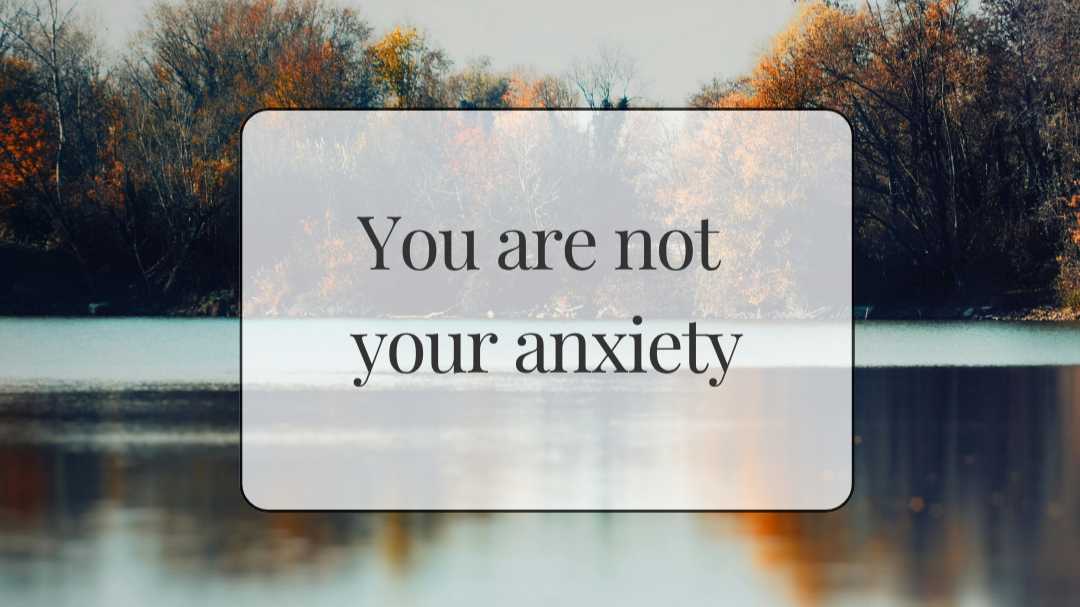Feeling Anxious? How to Support Yourself Through Anxiety
Let’s Talk About Anxiety – with Compassion
If you’re living with anxiety, you’re not alone – and you’re not “just overthinking.” Anxiety is real, powerful, and often misunderstood. It can show up as constant worry, racing thoughts, muscle tension, sleep issues, or a feeling like something bad is always around the corner.
The good news? You don’t have to fight it alone – and healing doesn’t have to mean “calming down” on command. It means understanding your nervous system, finding tools that work for you, and approaching yourself with care, not criticism.
Let’s explore some gentle, psychology-based ideas to help you feel a little less overwhelmed – and a lot more supported.
1. Notice How Anxiety Feels – Not Just What It Says
Anxiety often shouts urgent messages like “What if something goes wrong?” or “You can’t handle this.” But those thoughts are usually symptoms – not truths.
Try asking:
“What am I feeling in my body right now?”
“Is my anxiety trying to protect me from something?”
“What would it mean to listen with curiosity, not panic?”
Tuning into how anxiety feels (tight chest, racing heart, restlessness) rather than immediately reacting to what it says helps you pause – and that pause creates space for choice.
2. You’re Not Broken – You’re Wired for Safety
Anxiety isn’t weakness – it’s your nervous system doing its best to keep you safe. Sometimes it just gets stuck in overdrive.
Instead of trying to “get rid of it,” try asking:
“What’s making me feel unsafe right now – physically or emotionally?”
“What might help my body feel a little safer in this moment?”
That might mean deep breathing, a warm drink, gentle movement, or stepping outside. The goal isn’t to silence anxiety – it’s to soothe your system with care.
3. Kindness Calms the Nervous System
When anxiety spikes, it’s easy to get frustrated with yourself: Why can’t I just relax? But self-criticism only fuels the fire. What actually helps? Self-compassion.
Ask yourself:
“What would I say to someone else feeling this way?”
“What’s one kind thing I can offer myself right now?”
A gentle hand on your heart. A comforting phrase. A slow breath. These tiny acts of kindness signal to your brain: It’s okay – you’re safe enough to soften.
4. Small Actions Make a Big Difference
Anxiety can make everything feel urgent, complicated, or impossible. That’s why breaking things down into tiny, doable steps is so powerful.
Try asking:
“What’s one small thing I can do to feel more grounded?”
“What would ‘just enough’ look like today?”
Maybe it’s five minutes of fresh air, writing down your worries, or finishing one task instead of the whole to-do list. You don’t have to fix everything – just take one step.
5. It’s Okay (and Brave) to Ask for Help
Anxiety can be lonely – especially if it feels like no one else understands what’s going on inside your head. But many people feel what you’re feeling – and there’s no shame in needing support.
You might say:
“My thoughts have been really overwhelming lately – I think I need help managing them.”
“I’m not sure how to deal with this anxiety on my own anymore.”
Therapists can help you understand your anxiety, find effective tools, and build a sense of safety that lasts. You don’t have to hold it all by yourself.
A Final Thought: You Are Not Your Anxiety
You are not your fear. You are not your thoughts. You are a whole person who happens to be navigating a nervous system that sometimes sounds the alarm too soon.
You’re allowed to slow down. You’re allowed to ask for support. And you’re allowed to treat yourself with the same patience and care you’d offer to someone else in pain.
Need Support?
If you’re feeling anxious, overwhelmed, or just exhausted from constantly trying to “keep it together,” our psychology team is here for you. Whether you need tools, a listening ear, or a safe space to untangle your thoughts, we’re ready to walk alongside you. You’re not alone – and there is help that actually helps.
Emerald Psychology Practice: Working together towards healthier minds.






